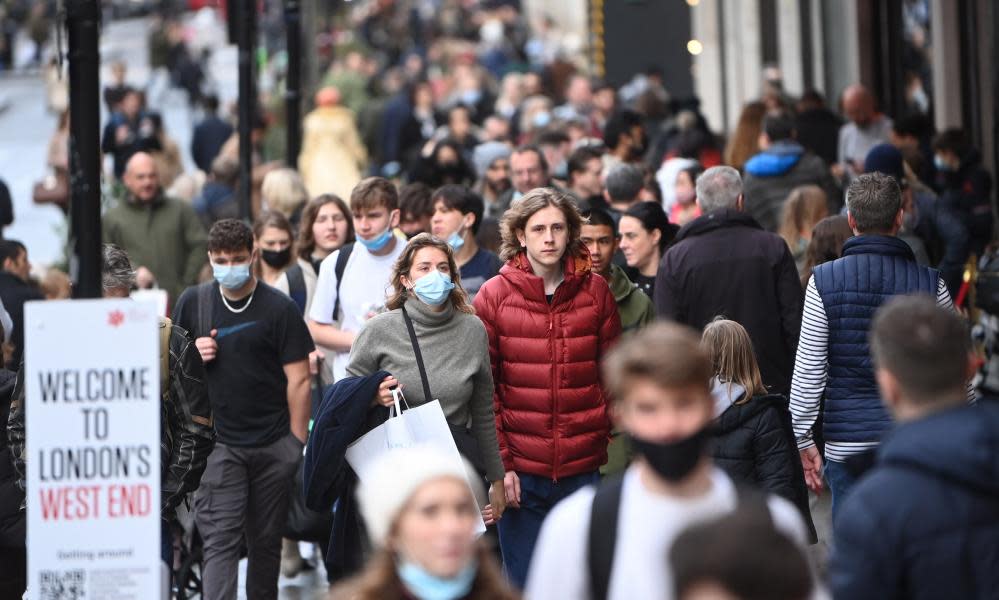UK borrowing figures heap pressure on Sunak to ditch national insurance hike

Pressure is mounting on Rishi Sunak to scrap April’s planned increase in national insurance contributions after the latest figures for the public finances showed the government borrowing £13bn less this year than expected in the October budget.
With cost of living pressures mounting, thinktanks and City analysts said a faster drop in the UK’s deficit would prompt the chancellor into a rethink of the £12bn tax hike to pay for the NHS and social care.
Official data from the Office for National Statistics showed the government borrowed almost £17bn last month, the fourth highest December figure on record. It took borrowing in the first nine months of the 2021-22 financial year to £147bn, £13bn less than the Office for Budget Responsibility (OBR) – the independent body which compiles the government’s economic and financial forecasts – was expecting in October.
The OBR said higher income tax, corporation tax and VAT payments explained why the deficit had come in lower than forecast.
James Smith, economist with the Resolution Foundation thinktank, which seeks to help those on low and middle incomes, said: “This fiscal room for manoeuvre makes it inevitable that the chancellor will set out a plan to deal with the cost of living crunch.”
Smith added a targeted package of support would be preferable to abandoning the national insurance (NI) increase, since the bulk of the gains would go to the richest fifth of households.
Julian Jessop, of the free market thinktank the Institute for Economic Affairs, said the chancellor had the “fiscal room” to ditch the NI increase. “The economy has recovered more quickly than expected, creating a “growth dividend” for the Treasury.”
Related: UK government borrowing falls but debt interest payments hit December record – business live
Rising tax receipts were partly offset by a surge in interest payments on the £2tn national debt, swelled by the emergency measures to support the economy over the past two years.
Prompting a warning from the chancellor of the need to reduce government borrowing, debt interest payments rose to a six-month high of £8.1bn after the sharp rise in inflation. Repayments on some of the UK’s borrowing is linked to the cost of living.
Sunak said: “We are supporting the British people as we recover from the pandemic through our plan for jobs and business grants, loans and tax reliefs.
“Risks to the public finances, including from inflation, make it even more important that we avoid burdening future generations with high debt repayments. ”
Samuel Tombs, the chief UK analyst at Pantheon Macro, said that despite rising debt payments, Sunak still had scope to intervene to ease the “cost of living crisis”.
The Institute for Fiscal Studies, a thinktank that specialises in tax and public spending, warned the long-term upward pressures would persist whether or not the chancellor abandoned the NI increase. “If he acts now on the cost of living, Mr Sunak will also need to find a credible means of committing to taking tough action on the public finances in the not too distant future.”
Despite the arrival of the Omicron variant, the ONS said that at £16.8bn, the UK’s budget deficit was £7.6bn lower in December than in the same month a year earlier and came in below the £18.5bn expected by the City.
Analysts said the UK was on course to hit the OBR’s £183bn borrowing forecast but might be blown off course next year by soaring debt payments.

 Yahoo Movies
Yahoo Movies 
